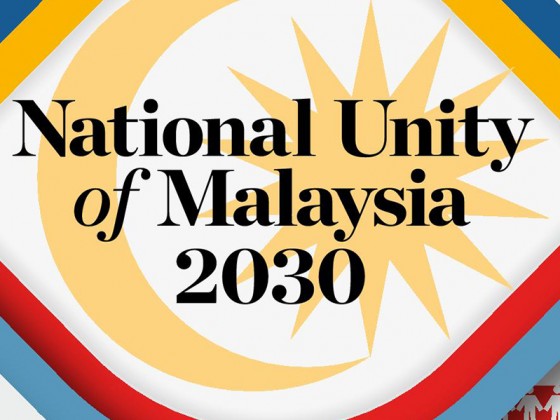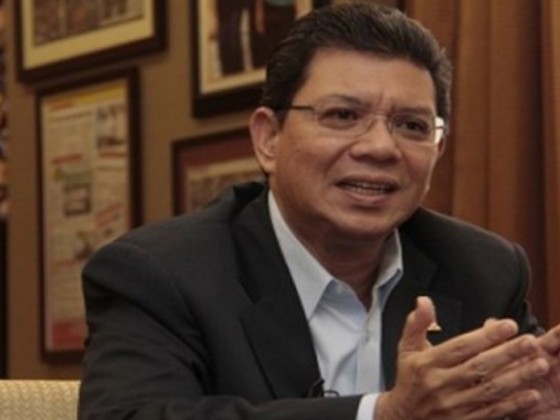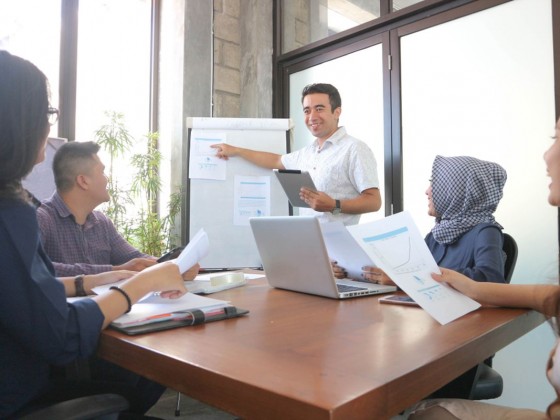Prof. Dr. Wan Mohd. Nor Wan Daud, Director of the Centre for Advanced Studies on Islam, Science, and Civilisation (CASIS), UTM
Colours of Malaysia
We rightly pride ourselves as a true multiracial and multi-religious nation where the population lives harmoniously and peacefully led by a strong and stable democratic Muslim dominated government reflecting the long political and cultural history of this nation.
Non-Malay religious, linguistic and cultural rights are not just allowed but visible and prominent. The Chinese in particular dominates the economic and technological sectors. All the major religions (Islam, Christianity, Hinduism, Buddhism and Confucianism) and two of the largest races (Chinese and Indians) of the world are found in Malaysia.
But, whether we want to admit it or not, we have to accept that Malaysian Nation Building is hampered by a certain degree of increasing disunity amongst her citizens. And the disunity is caused by the different understanding and expectations of certain fundamental matters such as religion, language, race, ethics and morality, politics and governance, development and justice. This is due to the lack of consistent and authoritative exposition on many key terms and concepts.
The superficial understanding of various major religions and cultures in this country has caused confusion and created frictions amongst some segments of different races in Malaysia. The nation’s higher education system has not successfully promoted the role of National language to bridge the intellectual, cultural and historical diversity between various races, religious and ethnic groups. We somehow forget that proper communication and good command of a common language is crucial in addressing important matters such as religion, race, ethics and morality, politics and governance, development and justice.
Religion, Culture, Tradition and Education
In a multiracial and multi-religious nation, the understanding of national history and of each other’s religion, culture and tradition are the basic elements of unity. Ignorance or superficial understanding leads to misconception and intolerance thus creating doubts and mistrust that are divisive and destabilizing.
Being once ruled by western powers for many centuries and now opened to globalization exposed us to the western worldview and way of life. We tend to uncritically accept their values and institutions although some are detrimental to our worldview and society. Much of our educational system is influenced by the West, especially at the higher levels, where the emphasis is mostly on professional training as well as industry and market driven. Very little attention is given to ethical development, social consciousness, and national unity particularly in the private learning institution. Most popular excuse given to reject attempts to teach and inculcate such matters is that ethics is mostly a personal matter, while social consciousness and national unity are least related to professional abilities. It must be argued that ethical failure of a person, especially in higher positions of societal trust and responsibility will certainly produce grave social and national damages. Professional expertise alone without a deep ethical, and social consciousness will not only contribute to personal and group/ racial selfishness but also to national disunity.
While we should continue to improve on the proper professional training and 6 industrial relations but we should not neglect the ethical, social and national agenda in the context of globalization which is based mostly from a Western, secular and capitalistic perspective.
This is important because, if the Western conception of development, governance, social well-being and personal success are pursued without proper understanding of our Eastern and largely Muslim history and worldview, our society will not know how to properly appreciate local realities, achievements and challenges. Demands for social, political and economic changes may not be really suitable to local and national needs, abilities and values. Such idealistic and non-relevant attitude and subsequent actions will be negative than positive. Recent examples of this can be seen in Iraq, Afghanistan, Egypt and other Middle East countries where their solution is more disruptive than constructive.
The basic problem with our higher education system is that we are training people as a workforce for a modern technology-intensive economy. The purpose of higher education must refocus on virtuous, ethical and socially responsible human development as an important educational agenda; and not only on fulfilling our economic needs. It should include a proper, and comparative understanding of our historical challenges, achievements, and problems and a more meaningful appreciation of national unity as a whole.
Medium of Communication
Malaysia’s racial, religious, socio-cultural and economic diversity is compounded by the fact that the national language has not been effectively mastered among all the segments of the 30 million population. Unity in linguistic usage can play an important role in unifying the various racial, religious and socio-economic groups especially in this age of globalization.
The continuous existence of Chinese and Tamil vernacular schools at the primary levels delayed the proficiency in national language and integration. This is made more difficult when more private international English language schools are becoming more popular especially among the high-income non-Muslims, and private religious schools among Malay Muslims. The national schools seem to be not the most attractive option for an increasing segment of Malaysians. Allegations that it is too Malay and too religious is not quite true because some Malay parents choose to send their children to formal religious schools which is more Malay and more religious. Furthermore the Malay-centric nature national schools merely reflect the historical and cultural reality of this nation. Unwillingness of non Malays to send their children to Malay schools may reflect an unwillingness to integrate with that reality which is unnatural and not helping to achieve greater national harmony and unity. Even though there are no vernacular secondary schools to continue the language and racial separation started at the primary level, yet the highly exam oriented culture of our secondary school system, although in national language, deprives our youth to develop better sense of inter-racial and inter-religious understanding at this crucial stage of their personal development. On top of that, the mono racial and religious character of Islamic schools, primary and secondary, understandably does not present much opportunity for inter racial and interreligious contacts. The largely Malay, and government boarding schools intended to help rural Malays for better educational facilities have a very small percentage of non Malay, and non Muslim student population. Efforts must be properly planned and carried out so that students in Islamic schools have more formal and informal experience with non Muslims, and larger percentage of non Malays and non Muslims are included in the non religious secondary boarding schools.
If the conception of development, governance, social well-being and personal success are based entirely on the idealized understanding of western concepts, the society will not know how to interpret local realities and requirement positively and fairly.
Another area of concern is the higher educational level where the language of instruction has gradually shifted to English, especially in the private higher educational institutions with an increasingly large number of students. More and more of our educated citizens are becoming less proficient in the national language. Inability to communicate in standard national language, especially when articulating issues of great importance pertaining to their dreams, their fears, their understanding of history, expectation of their future, has forced large number of our educated citizens and professionals to speak in broken national language or broken English. Neither their English nor their national language is good enough for effective higher order communication.
We are in a linguistically dilemma. Recognizing the global importance of English language, we cannot and should not make it eclipse the fundamentally important role of national language, especially in our multi-racial and multireligious context. The majority of Malays, Chinese, Indians, Kadazans, Ibans, Dayaks, and other indigenous groups do not have working knowledge of English. In fact we should also exert more comprehensive efforts to encourage the mastery of other foreign languages such as Mandarin, Arabic, French, German and Japanese. Yet, our national identity, our unity and our contribution to the cultural richness and diversity of the world is rooted in the national language.
Assuming we use English more extensively, then the society will be burdened with Anglo-Saxon Western meaning of key cultural and ethical terms and concepts which neither the Malays (who are Muslims), nor the Chinese (who are largely Confucians, and Buddhists, and a minority Christians), Indians (mostly Hindus and Muslims) would really understand and accept. People would be burdened with concepts from non-Asian understanding. The largely Christian people of Sabah and Sarawak are mostly tribal and commonly speak in their tribal dialects and the national language. The case is different in the usage of Malay language. It will be truer historically and culturally and will convey understanding that is more Asian. When the Malay language was accepted as the national language, it not only represents a historical and cultural continuity with our past of one thousand years. Beside Arabic, it also has a large number of Sanskrit words even in religious subjects, and Chinese words in mostly culinary aspects. Such major elements are naturally not found in the English language.
Since British colonial period, many English and even vernacular educated Malays did not have linguistic access to their o great spiritual, intellectual and cultural achievement of the Malay past written in Jawi Malay. Independence did not help much in this area. Hence many Malaysians especially the non Malays have little understanding and appreciation of the spiritual, intellectual and cultural strengths of this nation prior to the coming of Western colonialists through whose jaundiced eyes they see the Malay past. This causes wrong perception among the non-Malays about the Malays – that Malays are lazy and corrupted – which has become ingrained to this very day. This attitude which is based largely on colonial mythologization of our national character and history creates a deep seated mental barrier to national unity. How can immigrant communities really want to learn and appreciate the language and culture of the dominant majority that they don’t respect except as a purely pragmatic existential necessity?
Thus the proper understanding and usage of Malay language which is connected to its cultural and historical heritage is important for all, and should be critically taught at our schools and especially at the institutions of higher learning.
At the lower education level, the nation is split because of the nature of vernacular education system. We can still retain the current vernacular structure as an indication of our educational uniqueness as there is nowhere else in the world exist a parallel stream of education at the primary school level. However, these vernacular schools should be geographically and administratively separated from the national schools. This calls for the restructuring of our national school system in the sense that it incorporates the vernacular school linguistic medium.
All students should go to national primary schools say from morning till 11am which teach only in the national language. After an hour of recess, from 12 noon till 3pm the classes in the vernacular language would start. For Malay students this period would be for Islamic and related subjects. All these are carried out in the same locality. In another aspect, the student population of the full boarding schools must include 30 percent of other races. This is important as only selected good Malay students are paced at the boarding schools and, at the moment, these students have very minimal formal engagement with pupils of other races during their secondary education. Allowing pupils of other races to be placed in boarding schools would enable them to grow together and develop friendship with the Malay community. The introduction of the National Service Training Program – Program Latihan Khidmat Negara (PLKN) – after form 5 as a national integration program seems to be too late at the current situation. The youth needs to be exposed to such programs at an earlier age, throughout their secondary school years or, perhaps during school holidays when they are in non-examination years.
Leaders of Tomorrow
At the moment, the public understanding and appreciation in leadership is entirely limited to political and administrative leaders, and they are not aware of most leaders in other fields like business, religion, philosophy, education, sciences, medicine, art and architecture. The mass media do not give sufficient exposure to their proper role in the development of this nation. The country needs to know leaders in all fields. These leaders need to be exposed regularly in mainstream media so as to be visible. They need to have the attributes of being moderate, intelligent and knowledgeable and their critical and professional insights are valuable to strengthen greater trust in our system. However, this falls back to our current education system that is lacking in promoting and articulating these attributes.
In developed countries, experts in various disciplines are respected and are consulted in issues of public interest. Likewise, in Malaysia, leadership in various disciplines such as economics, culture, knowledge, science and religion that are free from political partisanship should be recognized by the population. This is important should the political leadership weakens, society would be able to refer to these non-political actors as sources of reference to help provide greater stability.
Race/tribe/ethnicity/religion as the most basic of human social category after the family and will never disappear. Race/ religion based politics and leadership in the country will continue to be an important factor in Malaysia and in all countries. The main issues are wisdom, justice, moderation, and socio-political stability and harmony in the pursuit of the well being and happiness of the largest number. To me the current model of power sharing based on historical character of this nation has been proven beneficial for all. The Malays and the other Bumiputras do not gain everything; the non-Malays and non Bumis do maintain their relative autonomy and their participation in the government. The annual list of most wealthy individuals in the country, considered from the point of racial/ ethnic composition, is a small but definitive proof that the current power sharing does not deprive the socio-economic progress and prosperity of anyone racial/ethnic group in Malaysia.
The suggestion to delete “race” or “religion” columns in official documents to promote National unity is very superficial as if its recognition is a cause of disunity. In fact, we must recognized and respect each other by knowing each other’s religious and racial identities, and well as other personal attributes (marriage, profession, height and even eye color, etc). Again the key challenge is justice which involves knowing, respecting and tolerating real differences.
The core ethical values of all religions must be reflected in our cultural discourses and education. Personalities of other religion, culture and civilization should be highlighted and common ethical values must be made the binding elements of our society. However, inter-religious marriage should not be encouraged as it may create deep-seated confusion on the most fundamental matters. Religious differences must always be respected.
Political Structure and Governance
A ruling party must be given an adequate mandate to form a strong government. Weak governments, even if they may be good, will not have enough confidence and support to carry out the necessary task of implementing needed policies. There are pros and cons in the current development of an unofficial two-party system in Malaysian politics. Whichever party wins an election, the winner should be strong enough to confidently do it work, otherwise it will cause incessant politicking and power-struggle that may hamper meaningful and lasting development.
To me, when we talk about majority we should not be limiting it to political majority only. We should also consider economic majority. Defining majority and minority from political perspective skews the real power. The Jews in America are a political minority but no one says that they are minority in other influential sectors. Such as the finance and media. In the world today, whoever controls the economic majority will indirectly control the political powers. In Malaysia, even though the Chinese are political minority, they enjoy economic majority. The Malays and other Bumiputras enjoy political majority, but experience economic minority. The Indians are minority in both. There are attempts by certain quarters to play the issue that as political minorities are being oppressed while, in actual fact, they really dominate in the economic sector.
The duty of achieving national unity and integrity which will prolong our harmony and increase our social well being should not be carried out only by public institutions including the more enhanced usage of national language. Fragile unity that will lead to social political instability will affect everyone including the private sector. There is need for the private sector to be more open for multiracial and multiculturalism, not merely as a support for government policy but also for their very own long term success. There are also a lot of rooms for improvement in multiracial/multicultural employment in the private sector including the multinational companies in the country.
The East Malaysian Experience
As I said earlier, the whole country has achieved a commendable state of unity despite its almost balanced diversity and many challenges. By a balanced diversity, I mean no one racial group forms the largest majority of more than 60 percent. To look at Sabah and/or Sarawak alone as a model of unity is not quite accurate. The East Malaysian unity is a good example of tribebased unity where major world religions are still quite recent among the dominant tribes. Furthermore, relative to West Malaysian, the communities are largely rural and quite separated from one another. The West Malaysian unity is based on a much longer exposure to, and practice of globally and regionally influential religion (Islam), and a major language (Malay language) which have successfully and peacefully unified the various linguistic and ethnic sub-groups in Southern Thailand, Cambodia, Singapore, Southern Philippines, Brunei, Sabah and Sawarak, Peninsular Malaysia and Indonesia for a thousand years. It is a unity that is both urban and connected to other regional communities.
What can we learn from other countries?
There is a lot we can learn from other countries on unity, not only in contemporary times but also historically. However we have to be selective and carefully analyze each one of them to suit or situation. It is not that simple. Even technologies require a great deal of adjustments in order to suit local environmental and cultural conditions. For example our neighbor, Indonesia, stressed the usage of Bahasa Indonesia as the national language among the citizen. So do countries such as Thailand and the Philippines that are proud with their national languages. But vernacular schools do not exist in those countries. They and all other countries do not give vernacular freedom of education to their citizens as we do here.
Our current model that has been in operation for more than 55 years is working much better compared to most other multicultural and multireligious nations. Since the 1969 tragedy, we do not face any major deadly racial/religious riots. For this we need a strong government. A strong government, even if it has its usual flaws, is better than a weak government. A weak government would not be able to do good even if its intention is good and would be too weak to stop evil/injustices/oppressions.
Media and ICT play a vital role in shaping the future of our social-political landscape. If not properly regulated and controlled, they can bring about negative impact to the country. We have seen examples of this negative developments throughout the world, especially in the Middle East countries where instability and volatility sparked from the movement of uncontrolled social media.
There should be a platform for young leaders of various races and religions, from the ages of 35 onwards to gain broad range of profound knowledge like what is being done by Aspen Institute in the US and the Cranlana Program in Australia where powerful ideas of great philosophers from various philosophical and religious traditions such as Aristotle, Plato and Confucius are discussed. We must also include materials from our own serious thinkers. These seminars/discussions should be led by experts. This allows young leaders to expand their thinking about nation building based on history and philosophy, and subsequently will give better ideas on things. In Malaysia, the books should include local heritage like the works of Raja Ali Haji and Sheikh Nuruddin al-Raniri. Our current education system which focusing on professional training is too limited in a more comprehensive and humane nation building. We have to learn from the examples of some of the developed countries where the education system matches very well with the cultural and historical aspect of the country in order to produce future leaders that have wider and deeper cultural knowledge and historical philosophical understanding.










